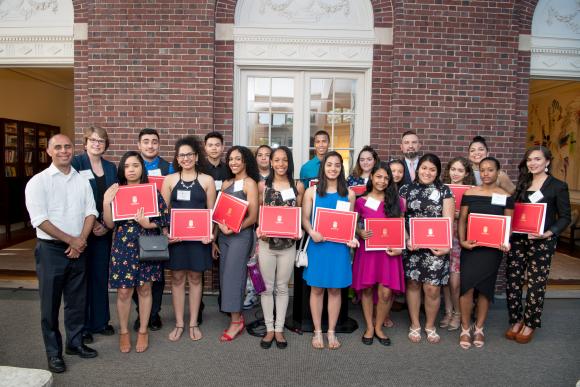Roger Williams University’s latest Faculty and Staff Writing Retreat drew record participation on May 23-24, bringing 28 people together at the University Library to devote two full days to uninterrupted writing and editing.
Robert E. Shea, RWU’s Associate Provost for the Advancement of Teaching & Learning, said this marked the fourth retreat in which RWU faculty and staff have worked from early in the morning until late at night on book projects, research papers and other writing projects. The retreats take place in January and May.
In all, participants dedicate more than 20 hours to their writing tasks, benefitting from research assistance by two librarians, taking advantage of feedback from RWU Writing Center writing consultants and pausing to refuel with coffee and food in the Mary Tefft White Cultural Center.
“The things they like the most are the time, the pampering and the consultation on demand,” Shea said.
This time around, the participants included Nicole Dyszlewski, a Research/Access Services Librarian at the RWU School of Law, who was working on a section of a book titled “LGBTQ and the Law: An Annotated Bibliography.”
“It’s nice that the institution supports our scholarly research,” she said.
Deborah Johnson, the law school’s Director of Diversity and Outreach Coordinator of International Programs, sat nearby, working on an article about cybersecurity insurance and the law that she plans to submit to a law journal.
Johnson said she was glad to have time to focus on the project. “On a day-to-day basis, I just don’t have the time,” she said.


